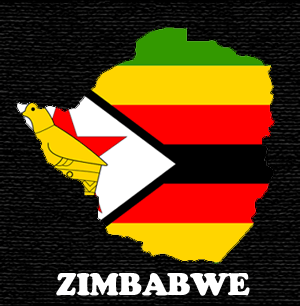New talks to save Zimbabwe deal amid threats of MDC pullout
 Harare - New talks aimed at salvaging Zimbabwe's power-sharing deal were due to get underway in Harare Monday, amid fears the Movement for Democratic Change of prime minister-designate Morgan Tsvangirai could pull out of the agreement.
Harare - New talks aimed at salvaging Zimbabwe's power-sharing deal were due to get underway in Harare Monday, amid fears the Movement for Democratic Change of prime minister-designate Morgan Tsvangirai could pull out of the agreement.
South African President Kgalema Motlanthe, his predecessor Thabo Mbeki, who is mediating in Zimbabwe, and Swaziland's King Mswati III arrived in the Zimbabwean capital Monday for talks with Tsvangirai and President Robert Mugabe.
Arthur Mutambara, leader of a minority faction of Tsvangirai's Movement for Democratic Change (MDC), is also involved in the talks.
Six weeks after agreeing to form a unity government, Mugabe and Tsvangirai are at loggerheads over which ministries should go to which party.
The MDC accuses Mugabe of keeping all the most important ministries for his Zanu-PF. The dispute is riveted on control of the home affairs ministry, which the MDC is demanding, but Zanu-PF is reluctant to relinquish.
Monday's meeting of a sub-group of the Southern African Development Community (SADC), the regional grouping that is currently chaired by Motlanthe, takes place a week after a first summit in Swaziland ended in failure.
Tsvangirai boycotted the meeting, giving as his reason the Mugabe regime's refusal to to renew his passport. MDC members say privately the MDC was unhappy with a report Mbeki compiled on the situation in Zimbabwe, which the party deemed biased towards Mugabe.
On Sunday, Tsvangirai warned the former South African leader he would pull out of the deal unless Mbeki showed more impartiality.
"We will abandon it (the deal) if we see that quite diplomacy is leading to quiet approval of wrong things," he warned.
The power-sharing deal is seen by many as the only way of rescuing Zimbabwe from economic meltdown. The once-prosperous nation is experiencing acute shortages of all essentials, including fuel, electricity, cash, food and drugs.
Inflation officially stands at more than 200 million per cent, though independent analysts put it at more than 1 billion per cent. (dpa)